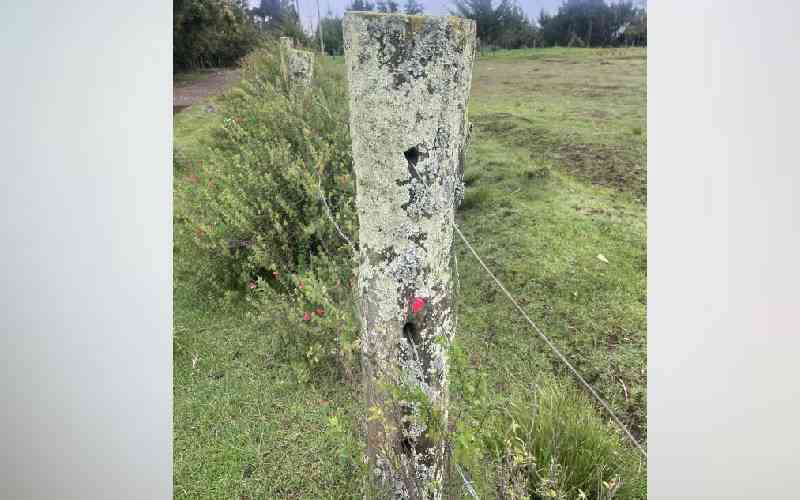×
The Standard e-Paper
Fearless, Trusted News

Curiosity can lead us far and wide. This fence caught my attention. It looks unusual, for three reasons. One the fencing wire "passes" through the post and two it has no "stings". Seen barbed wire?
Three, the post is old and made of cedar, a very rare hardwood. The age is indicated by leeches growing on it. Cedar is never attacked by termites and takes hundreds of years to mature, mostly in the highlands.